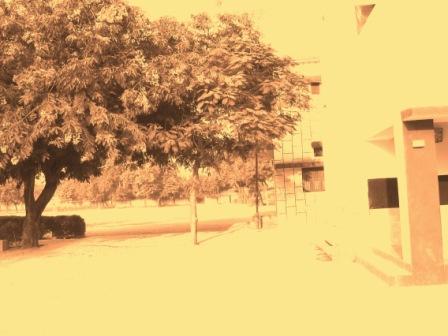Tum Mera Dukh Baant Rahi Ho
[By Jaun Elia]
[Translated from the Urdu by Siyaah]
Tum mera dukh baant rahi ho, main dil mein sharminda hoon;
Apne jhootay dukh se tum ko kab tak dukh pohonchaunga...
You are sharing my sorrows – I am, in my heart, ashamed;
Till when, with my false sorrows, will I give you this pain. [1]
You indeed are overcome with fidelity - swirling with desire;
I am mourning the loss of yearning – I will go mad. [2]
Jeet ke mujh ko khush mat hona, main to ek pachhtaawa hoon;
Khounga, kudhtaa hi rahunga, paaunga, pachhtaunga...
Rejoice not in winning me – I am but a regret;
I will lose, sulk forever; I will gain, I will regret. [3]
Ehad-e-rafaaqat theek hai lekin, mujh ko aisa lagtaa hai-
The time of companionship is fine, but I feel:
You indeed will stay with me – I will be left alone. [4]
At dusk sometimes, it is as though the heart is sinking;
Love me not to this extent – I may die. [5]
Let love, on reaching any stage, not be so carefree;
On bed I will now lie - and fall asleep as soon as I
lie. [6]
Translator's Notes:
[1] Dukh: sorrow, grief, pain, affliction, distress. I have used sorrow and also pain to convey the most precise meaning in the context of the poet's lines.
Jhootay dukh: An interesting expression - literally would mean 'false sorrows' and I have kept it as such, but I believe the poet is being self-deprecating and trying to see the insignificance of his sorrows in comparison to something else - that of causing sorrow to another (the one addressed).
[2] Sar-gardaan: 'head whirling around', dizzy, bewildered, confounded. I have used 'overcome with' as it means to overpower or affect deeply and fits better.
Raqsaan: dancing, whirling; I have used swirling as it also captures being dizzy or disoriented...implying lost in something.
Zawaal-e-shauq: zawaal means to lose, decay; shauq means desire, yearning, deep longing, love, taste, zeal etc. The phrase thus means loss-of-yearning.
[4] Ehad-e-rafaaqat: Ehad refers to time, period or phase; rafaaqat means companionship, association, friendship.
Structure: The poem does not follow the structure of the ghazal in that it has no matla (rhyming opening couplet); it is closer to a qita - which, as the poet once pointed out while reciting a different poem- can be of several couplets (not just two couplets as is commonly understood today).
About the poet Jaun Elia:
Poets find you when you need them, or rather when you need their work. I started exploring Jaun Elia in detail sometime last year and felt like a long-starved man who has stumbled upon delicious cake. I find Jaun Elia to be a bewildering, spontaneous, wild and most importantly - original - poet. He may even have been insane, in a way. His voice is unique in terms of its familiarity with classical language and yet its adamant desire to find its own form - often drawing clearly on his own dark experiences of life. At times, such spontaneous styles run into some inconsistency in terms of quality - but Jaun Elia has mostly overcome this and delivered an invaluable corpus of wildly spontaneous work. He seems to write for himself - and perhaps for a selected few others - and this contributes to the heartfelt nature of his poetry, none of which seems 'made up'; this couldn't-care-less approach meant that he only bothered to have his first book published around the age of sixty. More on him in the times to come...
A modern rendition of "Tum Mera Dukh Baant Rahi Ho" by Haidar Iqbal...I quite like this attempt - the style fits the words...haunts you for a while if heard a few times. In addition to classical and semi-classical renditions of Urdu poetry, I think there should be more such modern musical interpretations:






3 comments:
Can you please translate into english Jaun Ghazal,
Kitne Dilkash hu tum kitna dil jo hu mae one??
Regards,
How heartful you are how soft hearted i am...what a pity we will get died...
Love
Post a Comment